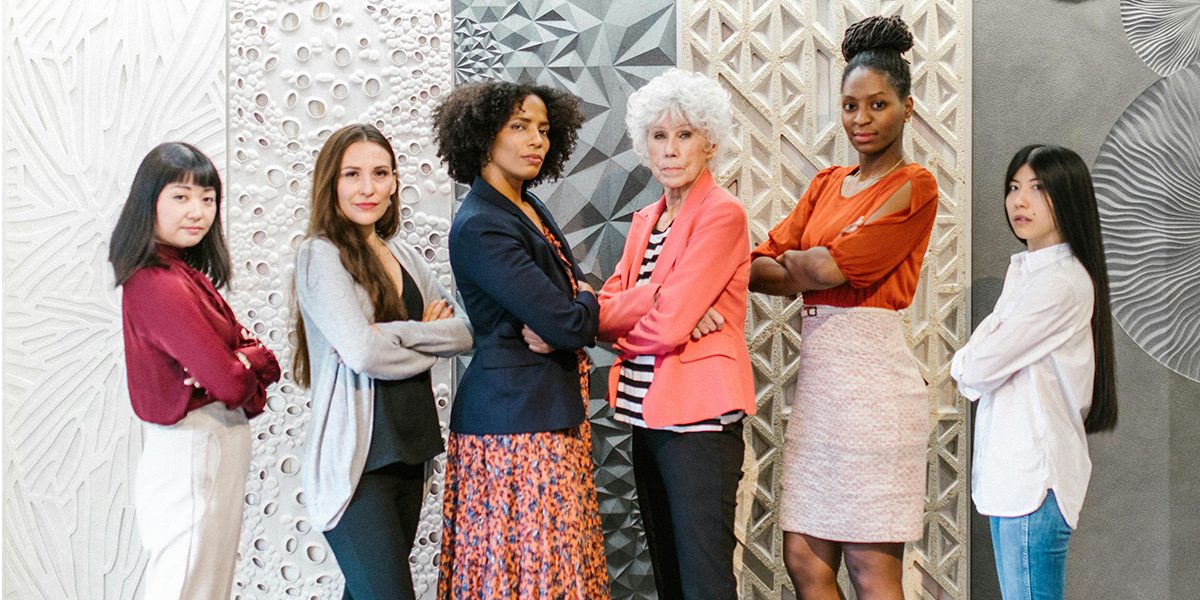Happy International Women’s Day!
I strongly believe that success does not have to come at the expense of your health and well-being, your approach to self-care coupled with your workplace culture can make all the difference. That’s why, at Neolé, we are on a mission to co-create workplaces that have a radically positive impact on our health and wellness. It’s a quest we’re delivering on daily. Still, today, when we collectively pause to celebrate women, I wanted to take a moment to share some of my thoughts and observations about women at work, especially those who hold leadership roles. I wonder if our current vision of success contributes to unrealistic expectations based on how women are treated at work and the pressures they experience while trying to hold everything together.
Let’s face it: the importance of women in the workplace, especially those with leadership roles, cannot be overstated. Women bring forward different perspectives that can offer tremendous benefits to companies. However, it’s fair to say that being a woman at work, let alone one in charge, isn’t easy. Personal and professional challenges can be difficult to overcome. Yet, there are opportunities for us to make fundamental shifts in our thinking that could better support women in improving their health and happiness.
Research backs it up: Women in the workforce are extremely valuable, but they are still under-represented
Companies with a mix of people from different backgrounds working together and making decisions tend to get better results. People recognize themselves in an organization, and it helps them understand and believe in the value the company is offering – whether an employee or a consumer. The most recent research into women’s contributions to the workforce, including the latest 2023 study of Women in the Workplace by McKinsey & Company and Deloitte’s 2023 Women @ Work report, revealed that while there has been some meaningful progress towards achieving gains, women’s representation at work is still quite fragile. And over the past year, we’ve seen women who held senior-level and top C-Suite positions leave their roles, citing the pressures of the jobs as the catalysts. It begs the question: If women are not visible in these roles, how does that alter the trajectory for advancements in having better representation overall?
Expectations for women, especially those in leadership roles, are unrealistic
Society expects a lot from women leaders. Men often have advantages at work just because they are men. From seemingly impossible to close pay gaps to all the extra work they do behind the scenes, women often feel they must work twice as hard to prove themselves. It’s a heavy and exhausting burden to prove their worthiness. For example, women often take the approach that they need to justify their positions based on what they have accomplished in their careers, which is different from men, who tend to have more freedom to focus on their growth potential. Ironically, while women constantly try to reinvent themselves, they feel anchored to their past.
Inequalities cause frustration and create a sense of injustice among women in leadership positions. Equally harmful are myths that some jobs are too demanding for women to undertake effectively and men are better equipped to handle them. All this pressure can take its toll on women’s mental and emotional wellbeing, contributing to stress and, often, burnout. An international study, The Tallest Poppy 2023, examined how “women’s success is under attack in workplaces around the world.” The findings from extensive research revealed how significant the effects of experiencing a lack of support are in workplaces and on “mental health, wellbeing, engagement and performance.”[1]
It takes courage to put your wellbeing ahead of your career success
Our culture places a lot of emphasis on markers of success like job titles and salary levels, which creates an almost obsessive willingness to give everything when it comes to a profession. Women inherently recognize how uncomfortable that is, and rather than continuing to defend their worthiness in a position, they are now embracing the need for personal and professional balance to feel more fulfillment. It’s a conscious shift to acknowledge that true success should be measured by health, happiness, and meaningful relationships. When we prioritize these aspects of life, it can lead to greater overall well-being.
However, at the same time, this doesn’t mean that there should be an expectation that women should be more willing to leave leadership roles to find fulfillment. Consider the recent departures of some notable women. I believe they were courageously forward-thinking, and their decisions reflect a powerful self-awareness.
Helen Helmersson
Helen Helmersson worked at fashion retailer H&M for 26 years, the last four of which were as CEO. In January 2024, she announced her resignation, indicating that while her decision was difficult, she had great pride in her work. In a press conference, she shared that she no longer had the energy to continue in the role given the demands and challenges she had experienced.
Susan Wojcicki
Susan Wojcicki headed YouTube as CEO for nine years. She left the role because she had “decided to start a new chapter focused on my family, health and personal projects I’m passionate about.”[2]
Jacinda Ardern
Jacinda Ardern, the former prime minister of New Zealand who worked in government for 15 years, resigned from that role in January 2023 and indicated she would not seek re-election. When speaking about the role of prime minister, she stated that she “no longer had enough in the tank” to do the job and that her new focus would be on her family.[3]
What can be done to support women better in leadership positions?
From shifting the thinking of top management teams to becoming more welcoming of changes and supportive of innovation to increasing profitability and taking on greater social responsibility, research proves that women’s influence in the workplace, especially those who hold senior positions, is associated with positive business outcomes. When women are in charge, companies make better decisions and tend to do better financially. Plus, everyone should have equal opportunities, no matter their gender.
More women would likely stay in leadership roles within their organizations if better supports were available. It can come in the form of flexible work arrangements and mentorship programs. But it can also take shape as strategies that help them develop a deep understanding of practical ways of caring for themselves so that they can feel healthy and energetic at any age, and developing better work-life balance. Women who feel supported and valued in their roles will likely stay and thrive in leadership positions.
As a result of an overwhelming response from an inaugural session, we’re pleased to announce that we are hosting a second workshop on Work-Life Balance on April 18th. Register now!
If you haven’t yet signed up for our Newsletter, you can do so to be sure you won’t miss out on the chance to register for an upcoming session.
Book a 30-minute private chat with Ginny to discuss your needs and how Neolé can help you make a monumental shift in your workplace culture
Ginny Santos MSc. CEO, Well-being Advocate, and Adjunct Professor.
[1] Women of Influence+ (n.d). The Tallest Poppy™. https://www.womenofinfluence.ca/tps/
[2] McCallum, S. (2023 Feb. 17) YouTube CEO Susan Wojcicki steps down after nine years. BBC. https://www.bbc.com/news/technology-64675997#
[3] Arder, J. (2023 Apr. 5) Jacinda Ardern’s valedictory speech in full. The Guardian. https://www.theguardian.com/world/2023/apr/05/jacinda-arderns-valedictory-speech-in-full#img-1







